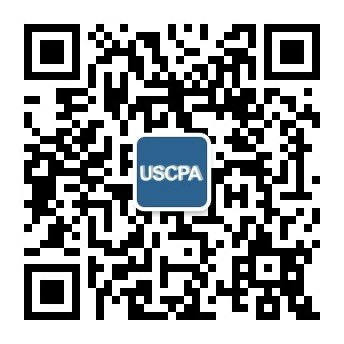
报考指南:2014年USCPA报考指南
考前冲刺:USCPA 考试试题 考试辅导
高清网课:USCPA网络课程



1、凡本网站注明“来源高顿教育”或“来源高顿网校”或“来源高顿”,的所有作品,均为本网站合法拥有版权的作品,未经本网站授权,任何媒体、网站、个人不得转载、链接、转帖或以其他方式使用。
2、经本网站合法授权的,应在授权范围内使用,且使用时必须注明“来源高顿网校”或“来源高顿”,并不得对作品中出现的“高顿”字样进行删减、替换等。违反上述声明者,本网站将依法追究其法律责任。
3、本网站的部分资料转载自互联网,均尽力标明作者和出处。本网站转载的目的在于传递更多信息,并不意味着赞同其观点或证实其描述,本网站不对其真实性负责。
4、如您认为本网站刊载作品涉及版权等问题,请与本网站联系(邮箱fawu@gaodun.com,电话:021-31587497),本网站核实确认后会尽快予以处理。
NASBA和AICPA将继续实施新的核心+学科CPA许可模型,目标是在2024年启动新的Uniform CPA考试。作为CPA Evolution计划的一部分,NASBA的领导层与AICPA合作,确定需要更...
2020-10-23当认为自己读懂教材后即可开始做题,如果该科或该章节有难度或比较陌生。第一遍可不必控制时间,即使花15或30分钟才解出一题,也比直接看答案要更有...
2020-10-23满足了总学分的要求并不代表你就到达了报名学分的要求,在总学分的要求中还有对会计学分和商业学分的要求。一般州的州要求需要24个商业学分和24个会...
2020-10-22最近几天,开年会、年终奖、放年假成了热门词,尤其是年终奖,有和没有、多和多少也成了饭后谈资,对于默默耕耘了一年的财务人来说,对完年账来瓶...
2018-02-09都说现在是90后的天下,00后已经开始当家,作为中国市场上的中流砥柱80后开始退居幕后,难道是都做老板了? 职场上超过35岁的人,不是主管就是经理,...
2018-02-09好奇怪,现在的男生追女孩子时间单位都是以天来计算, 追校花90多天没有反应便放弃; 追公司小白花40多天没有回应就放弃; 暗示隔壁公司前台妹子十几...
2018-02-08浏览知乎时,蹦出这么个问题如果再给你一次机会,大学你会选择什么专业?为什么?题主目前在考虑转专业的事,可能是不太喜欢现在的专业,加上自己...
2018-02-08最近一直泡在高顿部落上,2017年刚过,某些躁动的财务人开始不安分起来,刚好便于搜集信息,问问那些关于辞职、求职、投简历的事。 发现很多人有相...
2018-02-07一、艰苦的生活里也要柔软的活着 不知你是否看过一个短片,片名很文艺hard days soft happy。 短片主角被老板开除,收拾东西走人的时候,刚到公司大厅,放...
2018-02-06这一代90后终于赶上奔三的大巴了。 30多岁是什么概念?混得好的儿女绕膝,生活富裕;混的一般的膝下双子,生活紧凑,而像笔者这种,只能用生活紧凑...
2018-03-2263题E选项为何不选啊!持有公司发行股份5%前五名股东单位任职人员不能担任,10%已经大于5%不是应该能担任吗?如果不能担任,范围是多少
资本公积的计算过程不理解
B为什么不对呢
老师:可以分别和我说一下: 1.非货币性资产交换:双方的入账价值和差额怎么确认吗 2.债务重组的:双方入账价值和差额分别怎么确认 3.长期股权投资:初始投资成本,初始入账价值 这几个概念经常弄晕
77题C选项不是应该1%,为什么C正确
63题E选项为何不选啊!持有公司发行股份5%前五名股东单位任职人员不能担任,10%已经大于5%不是应该能担任吗?如果不能担任,范围是多少
资本公积的计算过程不理解
B为什么不对呢
老师:可以分别和我说一下: 1.非货币性资产交换:双方的入账价值和差额怎么确认吗 2.债务重组的:双方入账价值和差额分别怎么确认 3.长期股权投资:初始投资成本,初始入账价值 这几个概念经常弄晕
77题C选项不是应该1%,为什么C正确
Revenue recognition, internal control over financial reporting, and professional skepticism are among the seven key areas for 2014 audit consideration, according to an alert sent Thursday by the Center for Audit Quality (CAQ). The alert is designed to help public company auditing firms address risks quickly and proactively and remind them of considerations that may be relevant for the 2014 audit c.........
2014-12-05The Center for Audit Quality (CAQ) and the AICPA on Wednesday issued a joint alert to provide audit firms with an overview of SEC and PCAOB independence rules that apply to financial statement audit and attestation engagements for certain nonissuers. The alert is intended for auditors of: SEC-registered, nonissuer broker-dealers; and Where the engagement is subject to the requirements of the SEC c.........
2014-11-20说到美国的会计证书,不得不提到AICPA和美国注册管理会计师CMA。一个偏向于管理和战略层面,一个偏向于专业和技术层面,一个务虚,一个务实,但全部都围绕财会职业生涯所涉及到的方方面面的具体业务,无疑对财务人的职业发展来说是一个很好的助推器。...
2017-11-21对财会行业从业者,以及未来想要在该行业发展的人而言,CPA是一个响当当的名头,它在国内财会领域几乎已经成为了“至高无上”的存在,财会行业中金光闪闪的职场人生,基本都离不开它。...
2017-11-21前段时间,国家职业监管机构发布岗位证书现状信息,有个让很多人惊了一下的数据:原来国家存在如此多岗位证书?近200多张证书,不仅奠定了就业市场的繁荣也彰显了人才缺口所在。 会计类证书一直是考证党们最头疼的洪水猛兽。在近200张证书里的通过率也是低的吓人,高顿财经整理数据显示大概在.........
2017-10-23一入USCPA深似海,从此手机是路人。 备考艰辛路,谁人知我心。 我有USCPA证书,你跟不跟我走? 采访了许许多多奔赴在一线、二线的考生实纪之后,感想不是一般的多,浓缩成这几句话来还挺有味道的。看着那些每天鏖战在上下班通勤时间、奶完孩子后的十点、咖啡店靠墙角落的男男女女奶爸奶妈们,总.........
2019-09-11有个历史性问题一直是USCPA考证党在意的细节,一般纠结症严重的同学会表现比较明。那就是: USCPA考试是自学还是报班呢?好焦灼! 笔者在英语学习小组、会计能力提升战队、计算机程序编写新手群等多个学习领域周旋了一圈后,总结出以下几个tips供拖延癌晚期、懒癌重症者、纠结症患者自省。鉴于每.........
2017-10-20第一次听讲USCPA证书,还是因为同学的小叔是AICPA(美国注册会计师协会)的会员。那时候觉得这个证书格外的高大上,见识过国内CPA证书不到20%的通过率后,想来有很多小伙伴把眼光放到了USCPA、ACCA等证书的身上。 受过二十多年国内应试教育的影响,总认为USCPA不过一门国外的会计考试而已, 还不就是背.........
2017-10-18自1917年开始由美国注册会计师协会(AICPA)开始统一实行会计考试,截止2013年AICPA会员已达38万人, USCPA成为全球增长最快的财务证书之一。 它的出现从根源上解决行业专业认证的问题,然而随着现今社会的发展,行业对会计专业技能的要求也在不疾不徐的发生改变。也为了USCPA证书能更好的适合大众的需.........
2017-10-17据高顿财经历史数据分析,目前国内已有300+中国企业在美国上市,这些企业所需要的财务人才必须掌握美国会计准则相关税务税法为基本条件,只有这类人才方才便于他们的发展扩张。 而目前国内AICPA会员的规模不过几千人左右,这种人才缺口达到近30万,使得USCPA持证人的地位逐年递增。我们可以看到各.........
2017-10-17大到高官政要,小到村委书记都想着怎样把自己的子女镀上一层金。孩子的教育与背景身份被重视到极致,每年900多万大学生泛起的竞争机制使得学历优势一涨再涨。专科生少了出路。本科成了烂大街,就连研究生在上海北京一些城市的储备量也是非常惊人的。 考研那么难,干脆出国好了。 总有些高知喜.........
2017-10-11要不是小丽的大嘴巴,我都不知道他也在暗恋我! W T F?! 十分钟前才收到一份告白信我原地懵逼 真的是,震惊!到本仙女了! 一个是多金的地头蛇,一个是浪漫的小海龟 一个是有内涵的眼镜男,一个是很文艺的小鲜肉 一个是极具东方古典美,一个超有西方英伦风 啊 啊 啊 啊 啊 作为一名位列仙班(.........
2017-09-30